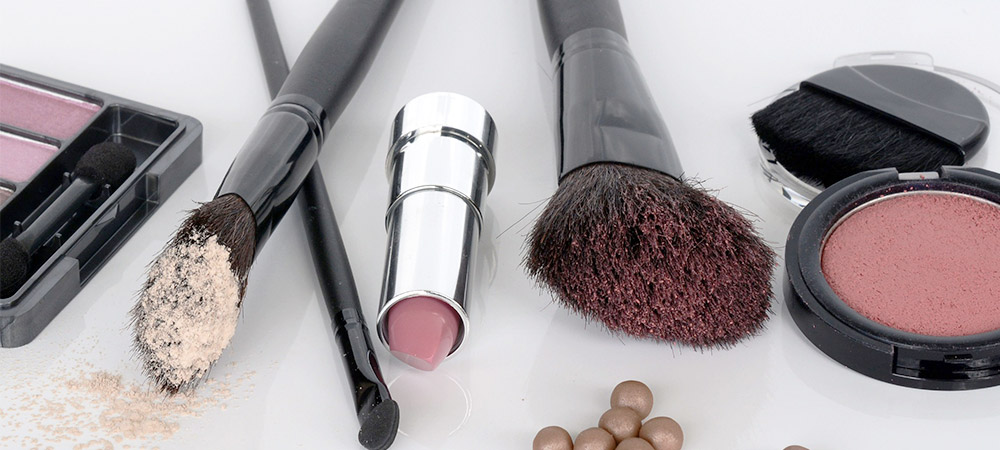Allergy Can Take the Beauty Out of Beauty Products

The products we use to beautify ourselves cause reactions for many people, leaving them with red, raised skin – a bit counteractive, if you ask me. Beauty products such as shampoo, mascara, lotion, perfume, and eye shadow can all contribute to itching, scratching and even sneezing for people who are “allergic to makeup.”
While some people have confirmed an allergy to a substance used in beauty products by testing, many of those who experience reactions aren’t really allergic to the product itself. Dr. Giana Nicoara, allergist at Allergy Associates of La Crosse, explains that an underlying allergy condition is often the reason certain beauty products cause an onset of allergy symptoms.
What is the allergy?
Dr. Nicoara explains that a reaction to beauty products isn’t always due solely to the product, but the underlying allergy condition the patient has – oftentimes eczema or allergic rhinitis.
“I had a patient who came in saying ‘I must have an allergy to make up. Every time I put on makeup my eyes swell.’ She has eczema, and her eczema was not under control,” Dr. Nicoara explains. “So the problem is, if you have a skin issue like eczema and it’s not controlled, it makes no difference what you put on your face – even if it’s an organic product – you’re probably going to have issues with it.”
The same goes for allergic rhinitis. If you experience allergic rhinitis and are already inflamed, an irritant like perfume or other fragrances can cause a flare up of symptoms. “Most of these people have allergic rhinitis, so they have inflammation in their nasal cavities and their sinuses as a baseline. Anything they add on top of that is the icing on the cake,” Dr. Nicoara says.
When beauty products are applied to the skin, reactions can be:
- Rash
- Swelling
- Itching
When fragrances are inhaled, symptoms are often:
- Runny and itchy nose
- Post nasal drip
- Sneezing
Dr. Nicoara explains that reactions usually happen right away, or within a few hours of using a product. If a patient is primed, meaning they may be in the peak of their allergic rhinitis or experiencing a flare of eczema, reactions are more likely to ensue, and quickly, at that.
Defining “hypoallergenic” in beauty products
A difficulty many people who experience beauty product reactions face is finding products that are “safe.” Some products have labels distinctly saying hypoallergenic, though there are no regulations in place that state what causes a beauty product to be hypoallergenic.
Products with this label can never be guaranteed to actually be hypoallergenic, especially because everyone experiences different reactions to different chemicals. As Dr. Nicoara states, what makes a product hypoallergenic ranges from person to person.
How you can prevent reactions
The most effective way to avoid reactions is to dodge beauty products all together, but Dr. Nicoara understands that this is not always possible or practical. She suggests that patients use organic products, as they are often free of harsh chemicals that are likely to cause reactions. For patients with severe or frequent reactions, a patch test can be conducted with an allergist to determine the specific chemicals that cause reactions in order to best avoid potentially damaging products.
Sublingual immunotherapy (SLIT, or allergy drops) can also help with eliminating reactions. “Sublingual immunotherapy helps with not necessarily the chemicals themselves, but it helps with the allergic rhinitis or eczema,” Dr. Nicoara explains a treatment option. “If you put a patient on custom SLIT for environmental allergens, it will help the inflammation, and it will help the skin as well. You treat the total allergen load.”
Custom sublingual immunotherapy helps the body build tolerance to specific offending allergens that have been identified to cause reactions in the patient, therefore decreasing inflammation and reactions to the allergen. With the underlying allergy under control, patient’s reactions to beauty products are less likely.
“We need to treat the inflammation. We need to treat the disease. We need to treat what’s at the base of all of this,” Dr. Nicoara states. If you’re interested in learning more about custom treatment for your unique allergies, you can find more information about conditions treated through the La Crosse Method Protocol and Allergychoices here.

